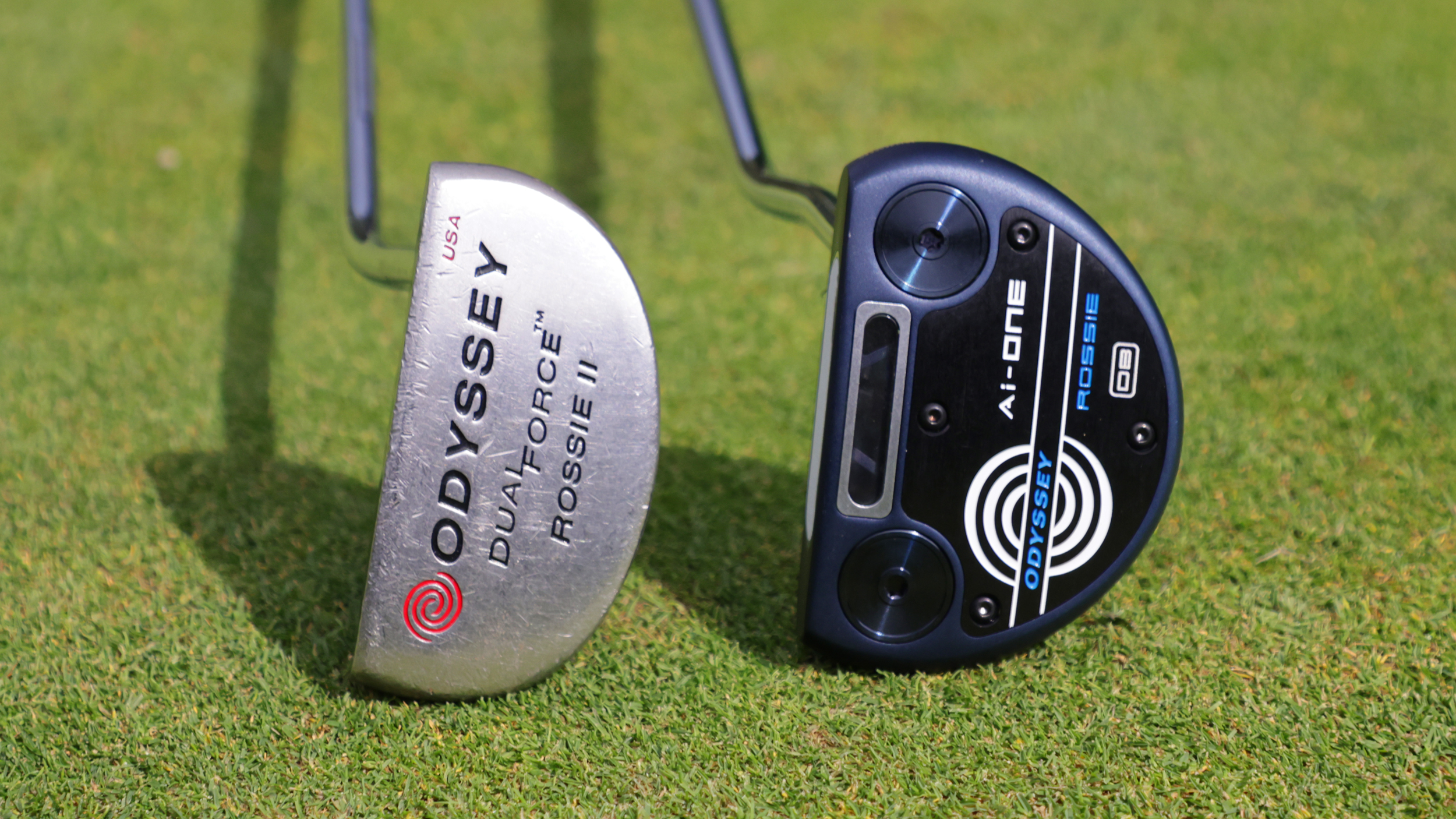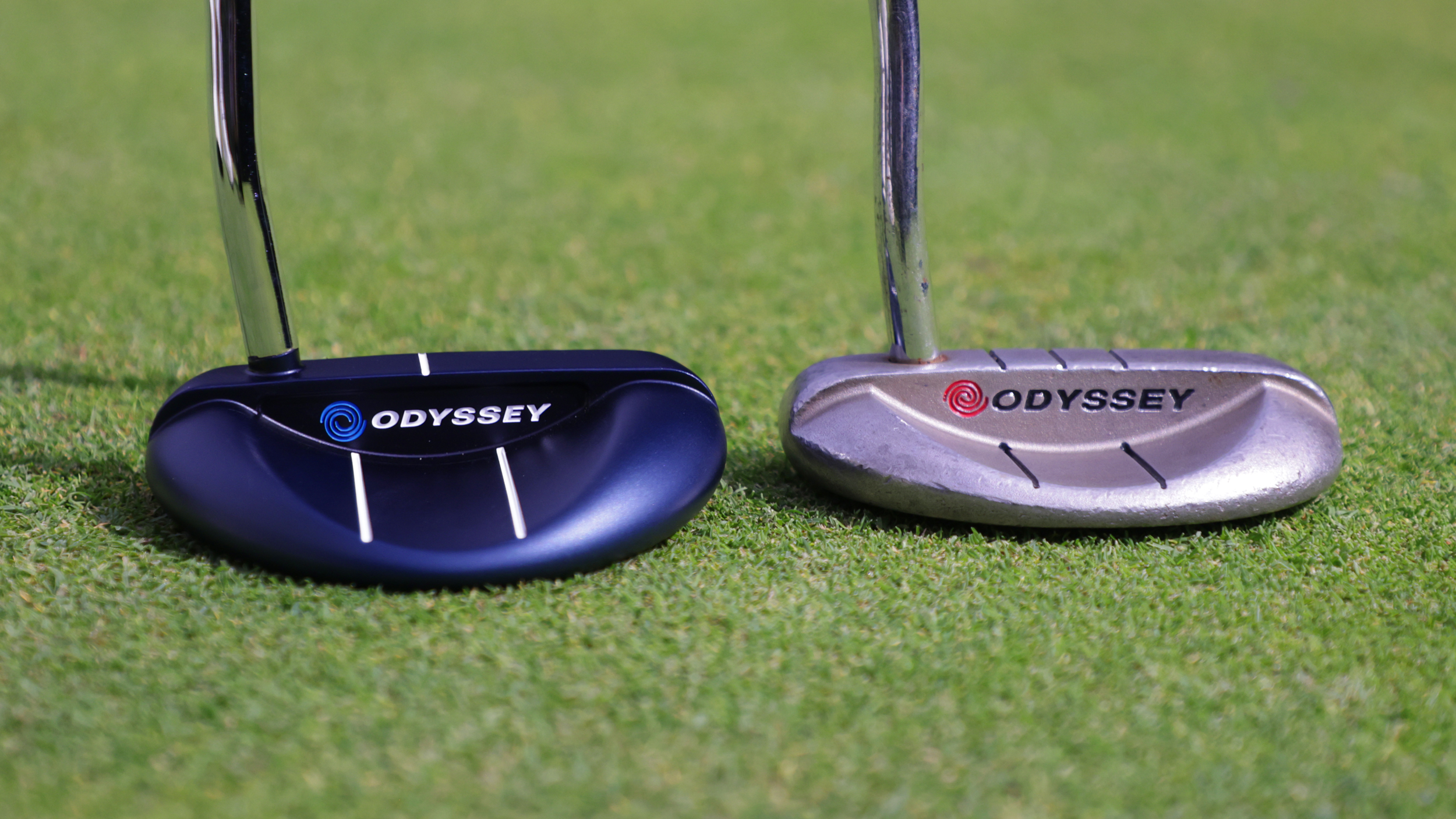
Throughout this series of Retro Reviews, we have looked back at some classic clubs of yesteryear, and now it is the turn of the Odyssey Dual Force Rossie II putter. Released in 1996, this putter was quickly adopted by a large number of top players on the PGA Tour, including Mark Brooks, Annika Sorenstam and Sir Nick Faldo, who had it in the bag for his iconic 1996 Masters victory at the expense of Greg Norman.
WATCH: Joe Ferguson compares the 30-year-old Odyssey Dual Force Rossie II to its modern-day equivalent
Original launch date: 1996
Price we paid: £48.99
Who used it on tour: Nick Faldo, Mark Brooks, Annika Sorenstam
What was the tech?
The Rossie II was a face-balanced putter, with some very prominent alignment aids, using three black lines on the top edge, and a further two in the flange for good measure. A side benefit of this positioning was that matching these lines up helped to ensure your eye positioning was constant. The Rossie II was one of the first putters to use an insert to alter the impact feel, and it used a polymer called Stronomic to do so.
How did it perform?
To see how the Rossie II had stood the test of time, we put it up against the current iteration, the Odyssey Ai ONE Rossie DB, one of the best putters on the market in 2024. Both models were 34 inches and the results were interesting.
Firstly, I wanted to get acquainted with both models so I simply spent half an hour hitting putts of varying lengths taking note of the feel and roll. The quality of impact from the modern-day Ai ONE model was exceptional, and its white-hot insert has been a favorite of mine for some time, but the 30-year-old Rossie II surprised me a little. A touch firmer than the Ai ONE, but genuinely pleasant. Both putters provided a nice pure roll and any difference in forgiveness was negligible.

For a more formal test, I wandered out on the golf course and found a particularly tricky, downhill 70-foot putt. I gave each putter 6 balls and with my trusty tape measure, I calculated the accumulative length away from the hole of the 6 putts with each. The results were something of a surprise with the old Rossie II taking this battle with a 5.3m total to the 5.9m result of the modern-day AI Smoke Rossie. To further investigate the performance, I headed into the 50% make range of the PGA Tour, which is 8 feet. This time I gave both putters ten putts each for a straight shoot-out to see which could hole the most. I started with the Ai ONE once again, and it produced a very creditable 6/10 result. Onto the 30-year-old model. After a stumbling start, the old Rossie II fought back well and actually tied up this particular contest at 6/10 too.
Conclusion
As a former owner of the original Rossie II, I thoroughly enjoyed getting my hands on one again and it didn’t disappoint. Still one of the easiest putters I have used in terms of alignment, and the feel of the Stronomic insert rivals any of today's putters for me. The Ai ONE model definitely had the edge in terms of aesthetics, but ultimately the older model actually performed marginally better in my tests. Truth be told, you would need to do some much lengthier and more extensive tests to give a perfect reflection of performance, but when you consider that I picked up the original for £48.99 and the newer model retails for £289.99, I think it is clear to see that there is plenty of value to be had if you are willing to skip back a few generations.







